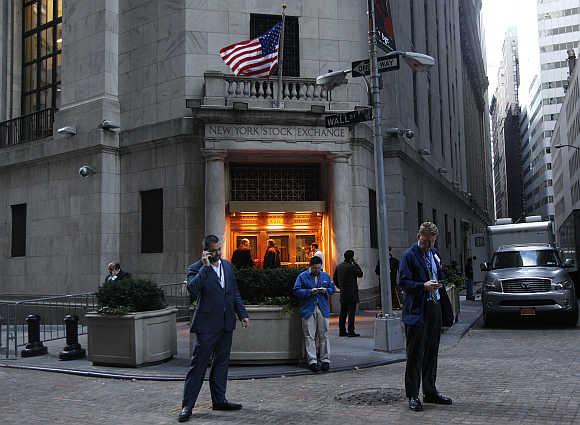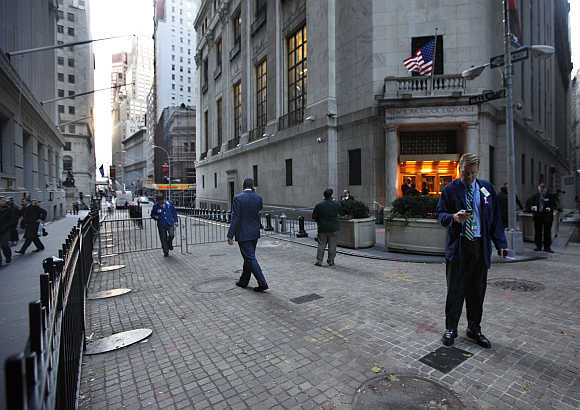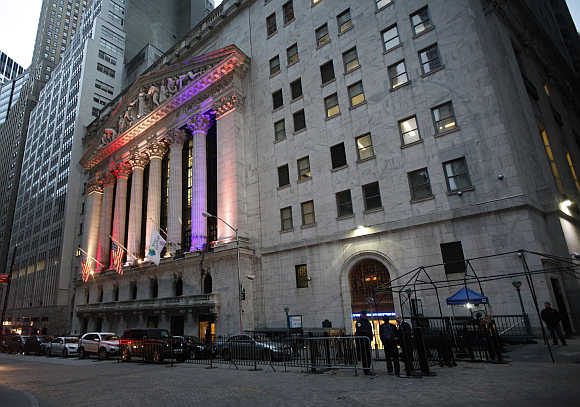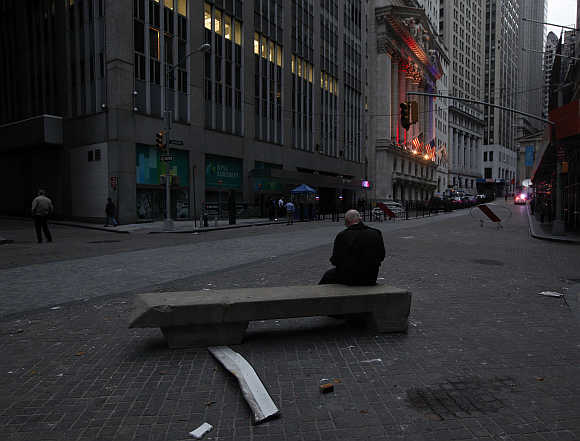 | « Back to article | Print this article |
Wall Street reopens after two-day shutdown
The New York Stock Exchange was back in business on Wednesday for regular trading after being shut down for two days because of Superstorm Sandy.
The exchange said in a statement that its building and trading floor were fully operational. Wednesday marked the first time since 1888 that the NYSE remained closed for two consecutive days due to weather.
Click NEXT to read more...
Wall Street reopens after two-day shutdown
It was shutdown in 1888 due to a huge blizzard that left drifts as high as 40 feet in the streets. The last time the New York Stock Exchange had an unplanned closing was after the attacks of September 2001.
NYSE Euronext and Nasdaq OMX Group, the largest two US exchange operators, were also expected to resume operations.
Click NEXT to read more...
Wall Street reopens after two-day shutdown
Wall Street also wants to show it can "operate in difficult conditions". The New York Stock Exchange spent much of Tuesday conducting trials. Earlier, Treasury Secretary Timothy F Geithner, stranded in California, held a phone conference with bank regulators to discuss potential difficulties, said The New York Times.
"Right now there are a lot of connectivity problems," said Lawrence E Leibowitz, chief operating officer of NYSE Euronext, it said.
The banks are making backup plans, too. "We're working on contingency plans right now on how to move people logistically are around the city," the president of Goldman Sachs, Gary D Cohn, told Bloomberg TV on Tuesday.
Goldman plans to open its headquarters on Wednesday, the firm said in a memorandum to staff members. JPMorgan Chase is reopening its Park Avenue headquarters in addition to at least 100 hub bank branches, but Frank J Bisignano, the bank's co-chief operating officer, said, "Power in New York City will be a challenge", according to The Times.
Click NEXT to read more...
Wall Street reopens after two-day shutdown
Disaster modelling company Eqecat said the storm is likely to cause insured losses of $5 billion to $10 billion, and economic losses of $10 billion to $20 billion.
The trading closure also threatened to delay IPOs of at least six companies, while Facebook employees were prevented from selling shares in the social media company after a "lock-up" on trading expired, according to RTE.
The broad effects of the market shutdown were beginning to become more apparent by Tuesday evening, as analysts estimated banks and trading firms could lose tens of millions of dollars in revenue, it said.



